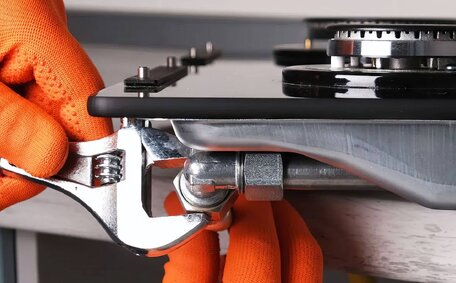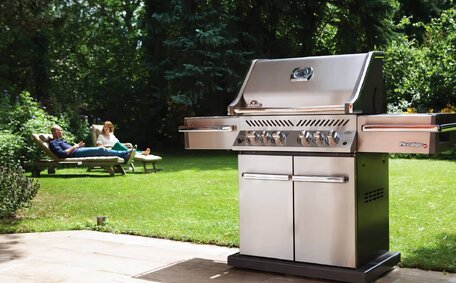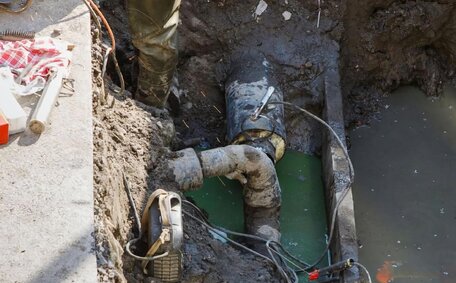
The role of gas fitting in kitchen renovations
When renovating your kitchen, it’s important to engage a licensed gas fitter to safely install, replace or alter any gas appliances and pipes. This ensures
Read MoreRegular gas safety checks are critical for ensuring home safety. Faulty gas lines and malfunctioning gas appliances can ignite fires, cause explosions, trigger dangerous gas leaks, and carbon monoxide poisoning. Homeowners must maintain their gas systems regularly with the assistance of qualified professionals.
An annual safety check of all gas fitting components, including connectors and gas-powered appliances, is necessary. Older homes or those with gas system issues may require more frequent gas inspections.
During a gas piping safety inspection, a gas fitter will examine all pipes, connections, valves, and appliances for leaks, corrosion, blockages, or other issues requiring repair or replacement.
This article recommends how often homeowners should inspect gas lines and appliances. We discuss warning signs that may indicate necessary repairs, steps you can take to prevent hazards, what happens during an inspection, and how to keep your family safe around natural gas.
Industry standards suggest that professional gas line inspections should typically occur once every 3-4 years, depending on the specific circumstances of use. Homes with extensive natural gas use and multiple appliances may require annual gas line inspections.
Gas fitters examine water heaters, hot water systems, all pipes, valves, connections, and appliances during safety inspections to ensure gas supply security and identify any leaks, corrosion, blockages, or other repair or replacement needs. Inspectors can also examine the gas metre, regulators, vents, flues, and water system.
Routinely maintain your gas system and schedule regular inspections, even without obvious problems. Components that showcase signs of wear and tear or slow leaks require prompt gas attention, as they can escalate into major safety hazards if left unaddressed.
You should organise a gas safety check to arrange for gas line inspection services if you experience any of the following:
Annual maintenance is essential for proper gas system functioning. Preventative maintenance is key to avoiding plumbing issues and ensuring utility integrity, reducing the risks of leaks, fires, explosions, and carbon monoxide poisoning, especially in gas-reliant homes.
Addressing problems gas systems face, the licensed plumber and inspector will use specialised leak detection equipment to check for even minute leaks that may be hazardous over time. They should also verify that all safety devices are in working order, confirm proper appliance venting, and examine that your gas system operates at adequate pressure and flow rates.
Visual inspections for corrosion or damage can indicate whether gas lines, including your natural gas line, are deteriorating internally. Undertaking gas line repair and updating ageing infrastructure are key steps in preventing future leaks or ruptures.
Homeowners who use natural sources of fuel should take important steps between professional inspections to help maintain gas line safety:
Recognise the value of performing basic gas line maintenance and inspections to address minor issues promptly.
The cost of a professional gas line inspection varies but is justified by the safety it ensures:
Basic single-appliance inspections might cost between $100 and $200, whereas more complex gas line inspections for a home with multiple fittings could range from $300 to $500. Complex setups requiring leak scans with specialised equipment may cost more.
Although gas line inspections require an upfront investment, they identify issues early, preventing costly emergency repairs later on. Preventing disasters like gas leaks, fires, or carbon monoxide poisoning is invaluable for protecting your house and family.
Some providers offer payment plans to spread the cost of inspections and repairs over time. Investing in regular safety checks to maintain systems ensures you can use gas safely, providing cost savings and peace of mind over the years.
For transparent quotes on inspections tailored to your needs and without hidden fees, you can contact a knowledgeable team at the provided contact number. Keeping your gas system well-maintained is always a wise, cost-effective decision.
There are several signs that may indicate your gas lines need to be professionally inspected right away:
Do not overlook these warning signs. If you can smell gas, which is often evident by a distinct rotten egg odour or abrupt hissing noises, call gas line experts immediately as it often means you have a gas leak, which can lead to explosions, fires, carbon monoxide poisoning, or other safety hazards if left unaddressed. Contact a qualified licensed professional immediately for an inspection if you suspect any gas system issues to avoid potential risks to your home or family.
A professional gas line inspection uses a systematic process to assess your entire gas system. This usually involves checking the gas heaters and appliance gas lines among the following steps:
Reputable, licensed professionals conduct gas inspections competently, catering to both residential and commercial gas systems. Allowing qualified technicians to conduct gas line inspections provides peace of mind that your system remains safe.
When renovating your kitchen, it’s important to engage a licensed gas fitter to safely install, replace or alter any gas appliances and pipes. This ensures
Read MoreGas line repairs require a licensed plumber to locate any leaks, fix damaged pipes and fittings, and properly seal everything to prevent future issues. Contact our emergency plumbers for safe and proper gas line repairs.
Read MoreDuring emergency plumbing situations, crucial safety precautions include turning off the main water supply to prevent flooding, wearing protective gear to avoid injuries, clearing standing water to minimize damage, and calling a licensed professional plumber for assistance.
Read MoreCecil Hills, 2171 NSW
We will call back as soon as possible.




